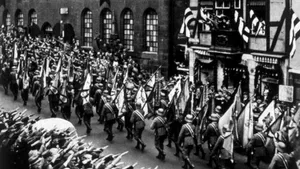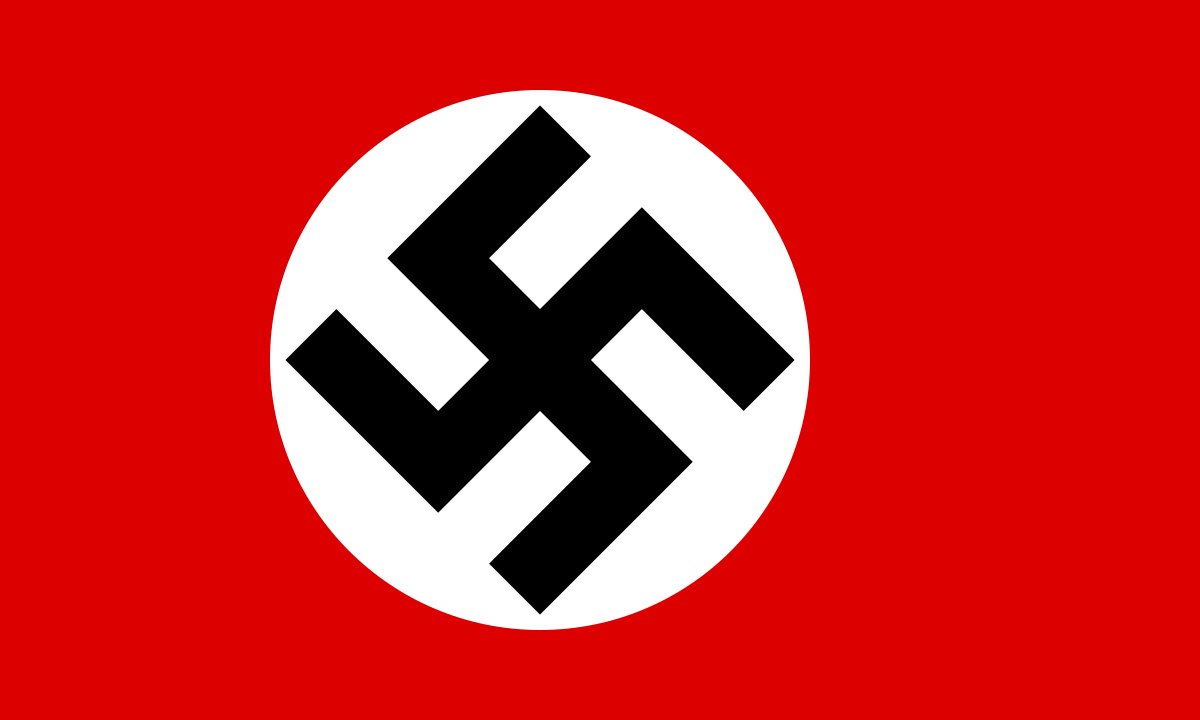Photo AI
Last Updated Sep 26, 2025
Hitler's Control of Germany (VIP) Simplified Revision Notes for Leaving Cert History
Revision notes with simplified explanations to understand Hitler's Control of Germany (VIP) quickly and effectively.
447+ students studying
Hitler's Control of Germany (VIP)
Hitler was able to maintain control of Germany and consolidate power through a variety of mediums. If you wish to answer on Hitler's ability to control the Nazi state/maintain power/consolidate power, then these notes specifically will be invaluable.
- How a Totalitarian State was Established
- Propaganda
- The Nazi Message
- Radio
- The Herrenvolk
- Literature and Art
- Education and Hitler Youth
Establishing a Totalitarian State
Totalitarianism
- Totalitarianism is a political system in which the state exerts near-total control over every facet of people's lives. Totalitarian regimes achieve total control over political, social, and economic realms, manipulating their citizens through propaganda and terror, typically led by a charismatic leader. Between 1920 and 1945, Nazi Germany and Soviet Russia exemplified totalitarian states.
- The Nazis rapidly established a totalitarian regime under the concept of Volksgemeinschaft (People's Community), demanding sacrifices from all Germans for the country's greater good. Hitler, ruling by the Führerprinzip (leadership principle), centralised all aspects of life under Nazi control, aiming to establish the Third Reich. Deputy Führer Rudolf Hess encapsulated this principle: "Adolf Hitler is Germany and Germany is Adolf Hitler."
- Hitler's grip on power was maintained through terror and propaganda. The Enabling Act and the Night of the Long Knives further solidified Nazi control. In the early 1930s, the Nazis adopted the straight-arm salute and "Heil Hitler" as formal greetings, becoming mandatory after Hitler became Chancellor. Media that broadcast or published anti-Nazi material were shut down, with all media required to promote Nazi propaganda.

The Nazi Administration
- The Nazis replaced all trade unions with the German Labour Front (DAF), which was voluntary but difficult to avoid joining. Local governments were suspended and replaced with Nazi-appointed governors, like Joseph Goebbels in Berlin.
- Heinrich Himmler, head of the SS, opened the first concentration camp in Dachau for political opponents and criminals, later used for forced labour and political re-education. Hermann Göring established the Gestapo, targeting political opponents.
- Nazi administration was chaotic, with Hitler rarely managing personal paperwork. Rivalries among Nazi leaders often led to competition, as those aligning with Hitler's wishes were promoted.
Propaganda
Propaganda played a crucial role in Nazi power. In March 1933, Joseph Goebbels became Reich Minister of Public Enlightenment and Propaganda, controlling Germany's media and culture. Goebbels' ministry managed seven divisions, covering all aspects of media and culture, ensuring Nazi propaganda permeated all facets of society.
The Nazi Message
- Goebbels believed that propaganda should be simple and repetitive. The Nazi message promoted the Herrenvolk (master race) ideology, depicting Germans as superior Aryans and others, such as Jews, Slavs, and Roma, as inferior. The Nazi flag became a symbol of this ideology, and Mein Kampf was widely distributed.

Radio
- Goebbels used mass media, including newspapers, cinema, and radio, to spread Nazi messages. He ordered the production of cheap radios (Volksempfänger) to ensure widespread access to Nazi broadcasts.
Literature and Art
- The Nazis censored and banned works that threatened their regime, organising book burnings and denouncing modern art.
- They promoted classical art favourably and criticised works by Jewish, German, and international writers considered degenerate.
Education and Youth Organisations
- Education under Nazi rule focused on indoctrination, loyalty, and obedience. Boys were prepared for military service, while girls were trained for motherhood.
- The Hitler Youth and the League of German Maidens became compulsory for all ethnic German children.
Herrenvolk
- The Herrenvolk concept, meaning "master race," was central to Nazi ideology, emerging from 19th-century European ideas. It posited that Aryans, specifically Germans, were superior to all other races.
- This belief justified the Nazis' policies of persecution and extermination against Jews, Slavs, Roma, and others labelled as Untermenschen (sub-humans).
- The Herrenvolk ideology was crucial for Hitler, as it underpinned his goals of racial purity, expansionism, and the eradication of those deemed racially or genetically inferior.
- This concept unified and motivated the Nazi movement, contributing to the widespread acceptance and implementation of their totalitarian and genocidal policies.
500K+ Students Use These Powerful Tools to Master Hitler's Control of Germany (VIP) For their Leaving Cert Exams.
Enhance your understanding with flashcards, quizzes, and exams—designed to help you grasp key concepts, reinforce learning, and master any topic with confidence!
389 flashcards
Flashcards on Hitler's Control of Germany (VIP)
Revise key concepts with interactive flashcards.
Try History Flashcards46 quizzes
Quizzes on Hitler's Control of Germany (VIP)
Test your knowledge with fun and engaging quizzes.
Try History Quizzes29 questions
Exam questions on Hitler's Control of Germany (VIP)
Boost your confidence with real exam questions.
Try History Questions27 exams created
Exam Builder on Hitler's Control of Germany (VIP)
Create custom exams across topics for better practice!
Try History exam builder117 papers
Past Papers on Hitler's Control of Germany (VIP)
Practice past papers to reinforce exam experience.
Try History Past PapersOther Revision Notes related to Hitler's Control of Germany (VIP) you should explore
Discover More Revision Notes Related to Hitler's Control of Germany (VIP) to Deepen Your Understanding and Improve Your Mastery
96%
114 rated
Interwar Germany - 1920-39
Weimar Germany and their Failures
259+ studying
190KViews96%
114 rated
Interwar Germany - 1920-39
The Fall of Weimar and Hitlers Path to Power
350+ studying
180KViews